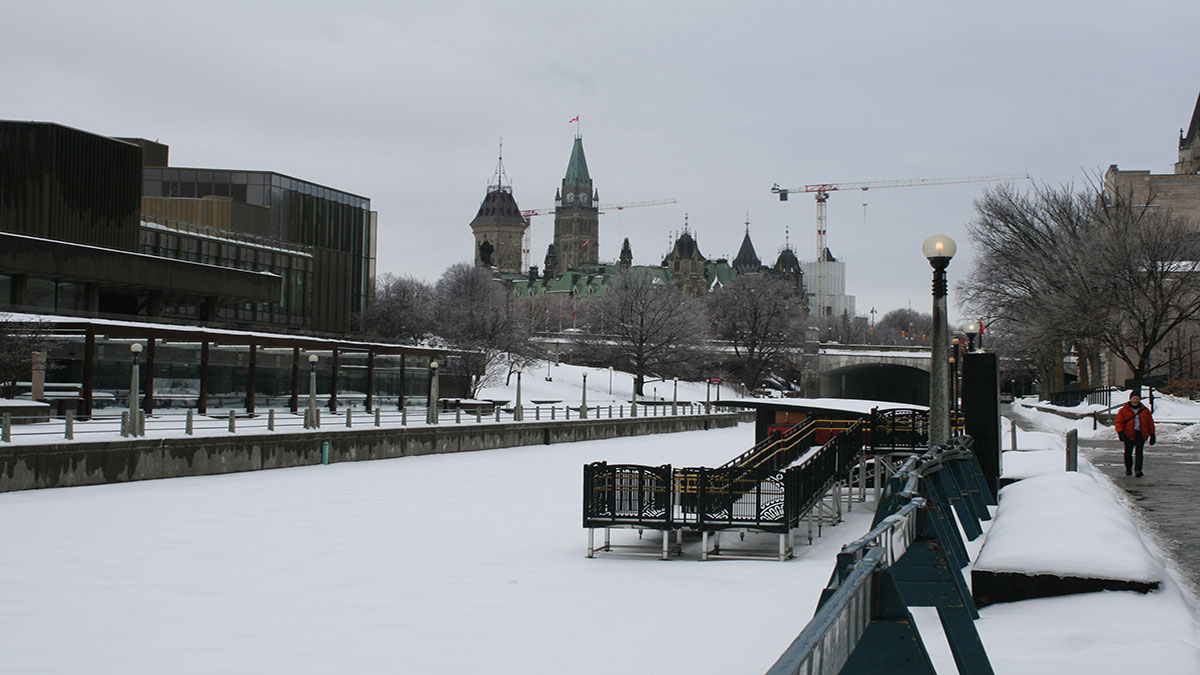For the second year in a row, winter has been disappointing for skating in Ottawa, with the Rideau Canal Skateway only partially open for a couple of days and outdoor rink operators anxiously waiting for some consistent cold weather.
The mild weather has some merchants wondering about the long-term viability of winter sports in the city.
Mustafa Ismail, owner of Quick Cranks in Ottawa, says demand for winter sports equipment has dropped 30 per cent this season, he estimates.
“The winters are going to keep getting warmer, with less and less snow,” said Ismail, whose store specializes in bikes but also has some ski equipment and offers skate sharpening. “At some point, you gotta ask the question, ‘Is it going be worth it to invest in all that equipment?’”
Ismail says he is considering offering more ‘fat bikes’ and tires designed for winter biking instead of selling ski equipment. This would mean hiring less part-time staff in the winter. Quick Cranks has seven employees, including Ismail, four full-time, and three part-time students, two from Carleton and one from the University of Ottawa.
Beniot Gatien, director of operations and public relations for Capital Skates, which runs skate rentals and sharpening on the Rideau Canal Skateway, says that the company purchased new equipment before last season and they were disappointed not to see it in use. Warmer, inconsistent weather likely means that they won’t purchase any additional equipment and will get all the use they can out of their existing gear for the next few seasons.
But he says that a shortened season also impacts the students who are hired each year.
All the logistics for a new season are organized by the first week of January, by that point staff is hired, and the skate shacks are ready to go, said Gatien.
Capital Skates keeps a tentative staff schedule each winter and hires employees no matter the temperature.
“The schedule was always published a couple of weeks in advance so at least [employees] could plan as though they were going to work,” said Gatien on last year’s operations.
Typically about 10 part-time employees are hired.
“A lot of them are students, and not necessarily looking for a full-time career,” he said.
Kiera Branton is a third-year history major at the University of Ottawa. She has been playing hockey for most of her life, so when she saw a flyer looking for paid part-time rink attendants for her local park a year ago it seemed like a perfect opportunity.
Branton was not able to work there last year as her schedule conflicted, but in January she was contacted again to see if she was available.
Having worked just one shift thus far, Branton’s impression of the gig is that it’s spontaneous, having not yet received a work schedule. She figures this irregular element is part of what she signed up for in a weather-dependent job.
“It’s been a bit confusing to me because it’s quite unstructured.” Her first shift was the day after they contacted her, and Branton was told she would get paid for her shifts in cheques at the end of each month.
Despite the inconsistency, Branton was reassured when she got there as it seemed like a regular job. The ice rink is mostly volunteer-run, but a few attendants are hired to be present and to ensure everything is alright while it’s in use. “Like a reverse lifeguard,” she said.
Ottawa has more than 250 community outdoor ice rinks. Matt Hyne, the city’s recreation supervisor, says that while the outdoor rink season has shortened, he has noticed a lot of volunteer interest this year.
“I think people realize how important these outdoor rinks are to their communities, so people want to see those rinks up and running,” he said. But he added that the weather will play a role in how sustainable the interest is.
“When you put in all that time and effort to make ice and then the next week it melts, it’s just disheartening.”




